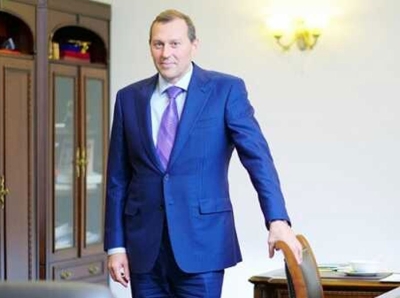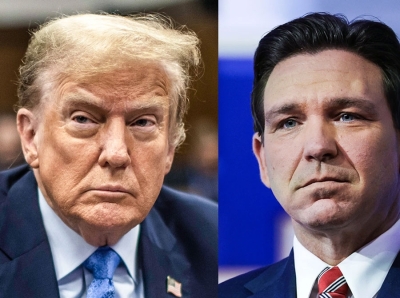In a landmark move, the European Union (EU) has taken decisive steps towards regulating artificial intelligence (AI), unveiling the world’s inaugural legislation aimed at overseeing the development and utilisation of AI technologies.
This development comes amidst growing apprehensions regarding the imperative to maintain sovereignty over regulatory standards, rather than succumbing to standards imposed by other global players.
The journey towards AI regulation within the EU traces back to February 2017 when a joint resolution of the European Parliament underscored the necessity of ensuring that the EU and its member states retain control over regulatory standards, free from external influence.
Fast forward to the present day, on 13th March of this year, the European Parliament approved the AI Act, marking a significant milestone in global legislative efforts to regulate AI technologies comprehensively.
The Act is pending approval from the European Council and will come into effect within 24 months of its ratification.
The introduction of the AI Act has raised concerns regarding what has been termed as the “Brussels Effect”: the potential ramifications of enforcing stringent EU legislation that could impede the further progression of these technologies.
Nonetheless, for the EU, which trails behind as a technological powerhouse in AI, this represents a bold assertion of political and legal dominance in a realm predominantly dominated by the US and China.
However, attaining success is by no means assured. Brussels is keenly evaluating potential risks. The AI Act envisions the direct implementation of its provisions while simultaneously expanding the notorious “Brussels bureaucracy.”
The newly established AI Office will play a pivotal role in ensuring compliance with the new regulations, overseeing the enforcement of the Act, and investigating any breaches of its stipulations.
The regulatory framework is underpinned by a thorough risk assessment, addressing existing or potential risks arising from the deployment of AI technologies.
While most “safe” AI technologies will be subject to framework restrictions, special attention is given to two distinct categories: “prohibited” and “high-risk” AI.
Prohibited systems encompass technologies for emotional recognition and behaviour manipulation, social scoring, predictive policing, and the majority of biometric identification systems.
Technologies posing a risk to fundamental human rights fall under the “high-risk” category.
These technologies will undergo rigorous testing and evaluation to ensure compliance with the requirements of the new Act, including mandatory registration, implementation of risk management systems, maintenance of specialised documentation, and engaging with users.
The new legislation has garnered significant political backing. President of the European Parliament, Roberta Metsola, lauded the Act as groundbreaking, asserting that it fosters innovation while safeguarding fundamental human rights.
However, its implications extend beyond the bureaucratic realm; the “Brussels Effect” primarily impacts all tech companies operating within the EU market.
Comparisons have already been drawn between the AI Act and the EU’s General Data Protection Regulation (GDPR), particularly regarding potential penalties for non-compliance: up to €35 million or 7% of annual turnover for companies.
Resistance from major corporations was anticipated. Companies intending to expand their AI technologies globally perceive the regulations as a threat to their continued operations within the EU market.
Over 150 major corporations, including Siemens, Airbus, and Danone, penned an open letter to the EU urging a reassessment of AI regulation plans.
They argued that the approved rules could undermine the EU’s technological potential and jeopardise Europe’s competitiveness and technological sovereignty.
Shortly after the Act’s approval, Meta, one of the largest tech companies, voiced opposition to any EU measures that could stifle innovation.
“It is critical we don’t lose sight of AI’s huge potential to foster European innovation and enable competition, and openness is key here,” said Marco Pancini, Meta’s head of EU affairs.
However, opposition to this regulation is not confined to large corporations. The governments of France and Germany have also expressed concerns, advocating for “self-regulation” options, suggesting that mandatory rules could adversely impact European startups.
European AI developers, such as the French company Mistral AI and the German Aleph Alpha, have similarly advocated for self-regulation, fearing a lag in EU progress compared to other technological leaders and the risk of excessive regulation driving companies to relocate their businesses outside the EU to evade stringent rules.
Potential solutions may lie in European co-regulatory instruments, such as regulatory “sandboxes,” enabling companies to test innovative products before market entry. Such co-regulation of AI will enable European regulators to strike a balance between state control and innovation support.
“Europe is setting global standards in AI,” declared EU Commissioner for Internal Market Thierry Breton after the legislation’s approval.
In this respect, the EU’s leadership in regulating the development and utilisation of AI technologies is indisputable. However, legal leadership alone does not guarantee technological success.
Equally vital will be ongoing regulation by other global leaders – China, the US, and the UK – all of which prioritise technological development and industry growth in their AI strategies.
Regulation in these jurisdictions could indeed validate business concerns: European companies relocating their operations to more lenient jurisdictions.
And given the rapid advancement of artificial intelligence, the impact of the “Brussels Effect” will become apparent in just a few years’ time.
Click here for more News & Current Affairs at EU Today
_________________________________________________________________________________________________________

Follow EU Today on social media:
Twitter: @EU_today
@EU_sports
Facebook: https://www.facebook.com/EUtoday.net/
https://www.facebook.com/groups/968799359934046







